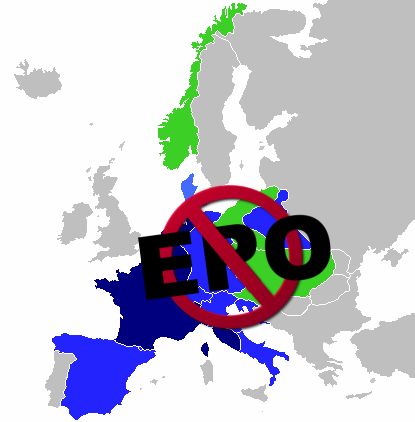

UPC lobbying/promotion/meddling by EPO isn't a particularly big scandal compared to other EPO scandals, but it definitely worth noting, especially considering last night's senseless self-serving propaganda which later made it into Twitter.
Europe's high-tech firms are threatened by patent reforms that will expose them to one of the worst features of the US system, says a patent expert
[...]
Under the EUP, a system of national patent courts will be set up. The verdict of any such court will be valid and enforceable in all countries that have ratified the treaty. It is, of course, important that their decisions are correct, unbiased and have a high standard of integrity. After all, when a court concludes that a patent has been infringed, the consequences can be serious. In 2006, for example, US company NTP obtained an infringement order against the maker of Blackberry mobile devices. The settlement cost Blackberry more than half a billion dollars.
So it is not a good omen that the signatories to the EUP include Bulgaria and Slovakia, two countries that are ranked very low in the World Economic Forum’s rating of judicial independence. Of 142 countries, Bulgaria is ranked 104th and Slovakia 116th. To put this in perspective, Zimbabwe is ranked 118th.
Why does this matter? When a patent holder initiates legal action, they generally get to choose the jurisdiction where the proceedings will take place. This creates an incentive for courts to gain a reputation for being favourable to patent owners, so as to attract business.
This “forum shopping” is already a real problem. In the US, the notorious Eastern District of Texas court is significantly more likely then other US patent courts to find in patent holders’ favour. Unsurprisingly, it is a popular venue for patent litigation. There is little to stop Bulgarian or Slovakian courts becoming the European equivalent.